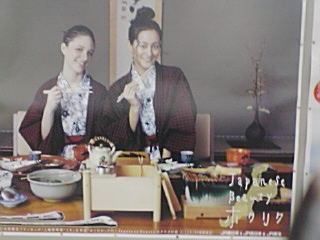“It’s just a(n) [insert medium here]!” “It doesn’t restrict what I do or say, so lay off!” “Why don’t you focus on a real problem like [enter “real” topic here].” The list could go on. They’re all different takes on the same idea – popular culture just isn’t important enough to study or critique. That’s all I seem to hear from anyone who doesn’t have the same interest in looking at pop-culture and its intersections that I do. So often, in fact, that I’m beginning to think that most people find the critique of whatever medium is being discussed is so heinous that the mere discussion of it must be stopped immediately or they think they’ll spontaneously combust.
In my introduction, I addressed the general concern of frivolity; namely I said that it wasn’t, indeed, a frivolous topic, but rather one that has immediate relevancy in our lives. In this installment, I would like to examine and debunk the common myths that make up the claim of popular culture being less important a field than traditional ones.
I. It’s Fiction, Not Real Life!
The claim that “it’s only a game/TV show/movie/whatever!” is possibly the number one argument that I hear against critiquing popular culture. It is said as if, because it’s considered to be “entertainment,” no messages can be, or even are meant to be, gained from it. So, while pop-culture is not always real in the tangible sense (a video game world is not 100% the same as ours, for instance), it is as involved in persuading people as this article, or a book, or any other “acceptable” medium is. And, like with any other medium, those who produce popular media use varying tactics — both subtle and obvious — to get their message out. Those messages, whether we want to admit it or not, do have some sort of impact on the way we view ourselves and others.
When you have a story — in a novel, a video game, or what have you — the correlation to, and therefore the impact on, real life is probably the most clear. Take Lara Croft, for instance. In an effort to promote realism, she’s gone through a redesign that is meant to make her more accessible (or perhaps take the wind out of the sails of naysayers who think that she helps encourage the objectification of women).
On the one hand, a step towards a more realistic design can be seen as a good thing. When the players, both men and women, are exposed to women like Lara Croft who have a body shape no woman could ever have, it has a good chance of skewing their view of actual women; suddenly normal proportions are seen as “small” or “weird” or even “ugly”. But, making her more realistic — and therefore attainable — comes with its own set of problems.
As a gaming woman, I don’t find Lara Croft’s new proportions especially empowering or representative of me. It’s another message of how I ought to look so I can be sexy, confident, and poised. The consensus was that Croft was ridiculous, even from those who found her aesthetically pleasing. Now, she’s “realistic.” I could, theoretically, look like the new Lara Croft; she’s become within the realm of possibility existing.
Lara Croft isn’t real. She’s pixels, vertices, skins… what amounts to an image on your computer or TV screen. But her impact on the minds of those who are exposed to her image, whether for good or ill, is real. And that impact is exactly what is, and what needs to be, addressed when we look at popular culture as a valid body of study.
II. What Makes a “Real” Problem?
Another favourite from the pop-culture bingo board is to make the argument that one should be focusing on real problems instead of this. You know, I’d really love to find the mythical quality that makes something “real” because it seems that everyone has their own opinion on what qualifies as a topic to be discussed. Women’s issues? Try again. Racism, that’s got to be “real”! Not unless it’s obvious. Oh, wait, I know, I know! Men’s issues. If they aren’t real, nothing is! That would be another negatory.
What I’m trying to say is that when you label an issue as “not real” in an attempt to dismiss the person speaking about it, the word “real” loses all meaning. It becomes shorthand for “things I believe in,” but, guess what? Just because you believe that one thing is more important than another doesn’t invalidate the subject at hand. Novel concept, I’m sure! You don’t think pop culture is important? Great, there’s the back button. Hit it and find a subject that does interest you.
Furthermore, this “I get to define what’s real and what’s not” argument is often used in place of actual criticism — dismissing the premise of the original argument means that the points made in it can continue to go unaddressed. Let’s take the controversial White Wolf game that spawned the original version of this post, Pimp the Backhanding. When it was brought to their attention, many feminist White Wolf fans e-mailed the company with their concerns.
The canned response that all of them got is simply shameful:
I’d recommend people that want to do something about actual abuse of women, as opposed to assaulting people because they are mocking the criminals that engage in illegal prostitution, check out this link, and go do something about it: http://www.cnn.com/2005/WORLD/africa/01/08/congo.peacekeepers.sex/index.html
Or is it maybe too difficult to attack real world problems, so you would prefer to attack fictional ones?
Conrad Hubbard
White Wolf Publishing http://www.white-wolf.com
Sword & Sorcery http://www.swordsorcery.com
“Promote the Progress of Science and useful Arts, by securing for limited times to Authors and Inventors the exclusive Right to their respective Writings and Discoveries” – U.S. Constitution
 Mr. Hubbard envokes our “go focus on a real issue” argument here. He first of all makes the usual mistake of assuming that speaking out on one issue means that the person therefore cannot, and does not, involve themselves in other issues. Or “mistake,” I should say. I’m fairly sure that in Hubbard’s case, as well as many others, it’s a calcuated move aimed at making the activist look silly while painting the attacker as someone who is truly interested in the root of the issue. Too bad for Mr. Hubbard, it’s quite obvious that he chose the first relevant-looking news article he could find — revealing his argument to be the slap in the face it really is. (Pun intended.)
Mr. Hubbard envokes our “go focus on a real issue” argument here. He first of all makes the usual mistake of assuming that speaking out on one issue means that the person therefore cannot, and does not, involve themselves in other issues. Or “mistake,” I should say. I’m fairly sure that in Hubbard’s case, as well as many others, it’s a calcuated move aimed at making the activist look silly while painting the attacker as someone who is truly interested in the root of the issue. Too bad for Mr. Hubbard, it’s quite obvious that he chose the first relevant-looking news article he could find — revealing his argument to be the slap in the face it really is. (Pun intended.)
By utilizing his condescending “more real than thou” rhetoric, Hubbard was able to avoid a real discussion on the potential impact of Pimp on the audience that played it. The real life correlations — language of the game, the treatment of women, the gendered and racialized depictions of the characters, etc. — were swept under the rug as if they don’t, and can never, exist. But, I’m going to go one step farther here. I’m going to suggest that his assumption that he can define what a “real” problem is and is not is tied into his privilege.
In this case, privilege acts as a bubble, insulating a person from the fallout of culture. The problem isn’t “real” to him because he doesn’t have to see that the game feeds the very culture it draws from — nor does he have to see the real harm that the culture does. Racism, sexism, sex trafficking, violence against women… all of these are real issues, and all of them are utilized as themes in the game. And dismissing the way those real issues interact with society and culture because they’re contained in a game that is fictional is in no way, shape, or form a useful thing to do.
III. Jeez, Can’t You Take a Joke?
Continuing on with the Pimp the Backhanding example, I’d like to point to a disclaimer on the site:
Arthaus Games does not condone or support the illegal sex trade industry. Pimp is a fictional game about the humorous stereotypes created by television and film and is in no way representational of the true horrors of the sex trade.
I’d also like to revisit the part of Mr. Hubbard’s response where he argues that White Wolf is “mocking the criminals that engage in illegal prostitution.” The humour defense is quite common and is based on the assumption that if something is supposed to be “funny” it is therefore exempt from any criticism that may be levied on it. Don’t get me wrong, I think that humour and especially sarcasm can be an effective tool to combat oppression, but saying something offensive as if it’s funny isn’t a “get out of jail” free card for being offensive.
I think the game is “mocking” something all right, but I’m not so sure it’s the “criminals who engage in illegal prostitution.” Take, for instance, how they explain the dynamics between the “Macking Phase” and the “Backhanding Phase” on the website:
Each pimp in your posse can be used only once each round, either to mack a ho or to backhand one of the harlots an opponent tries to take home.
So, by normalizing gendered slurs against women (“ho” and “harlot”, both of which are currently used not only to deride prostitutes, but all women), including violence against said women as a desireable game element (“backhanding… the harlots and opponent tries to take home.”), and glorifying pimps while mocking prostitutes is “mocking the criminals who engage in illegal prostitution.” Right.
Not to mention that I fail to see how a game that uncritically exploits the harmful, sexist, racist, and classist “humorous stereotypes created by television and film” in a way that makes it seem cool is “mocking” the “criminals.” But it’s really obvious how it mocks the “true horrors of the sex trade” that it’s clearly not representing.
IV. Conclusion
Even after reading all this if you think that popular culture is “frivolous” then that’s your business. I’m not asking every person to give up the causes they’re attached to and study pop-culture. Sure, I’d like people to be aware of and care about it, but at this point I’d settle for those not interested in it to just go elsewhere. I’m really sick of the “omg get over it it’s a…” comments that are obviously meant to shame me. Well, I’m not ashamed, because I know that this shit is important. And if I can help one person see the way popular culture influences their life, then it’s worth it.


 Mr. Hubbard envokes our “go focus on a real issue” argument here. He first of all makes the usual mistake of assuming that speaking out on one issue means that the person therefore cannot, and does not, involve themselves in other issues. Or “mistake,” I should say. I’m fairly sure that in Hubbard’s case, as well as many others, it’s a calcuated move aimed at making the activist look silly while painting the attacker as someone who is truly interested in the root of the issue. Too bad for Mr. Hubbard, it’s quite obvious that he chose the first relevant-looking news article he could find — revealing his argument to be the slap in the face it really is. (Pun intended.)
Mr. Hubbard envokes our “go focus on a real issue” argument here. He first of all makes the usual mistake of assuming that speaking out on one issue means that the person therefore cannot, and does not, involve themselves in other issues. Or “mistake,” I should say. I’m fairly sure that in Hubbard’s case, as well as many others, it’s a calcuated move aimed at making the activist look silly while painting the attacker as someone who is truly interested in the root of the issue. Too bad for Mr. Hubbard, it’s quite obvious that he chose the first relevant-looking news article he could find — revealing his argument to be the slap in the face it really is. (Pun intended.)
